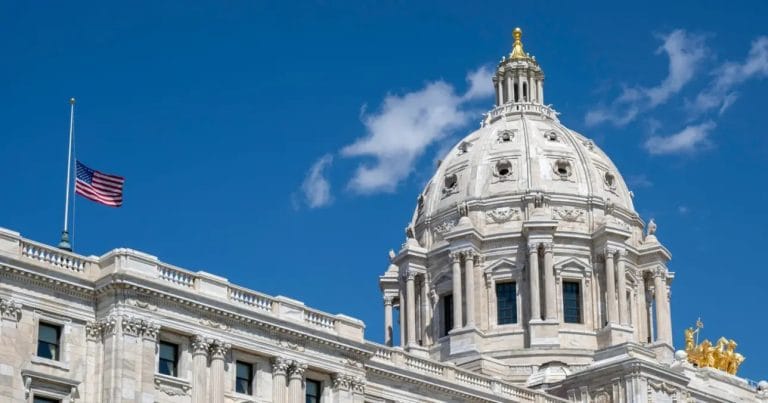🎧 Listen to This Article
As Minnesota’s lawmakers near the end of this legislative session, the final shape of the state’s tax bill is anything but settled. A blend of progressive reforms and bold experiments, the proposals range from a baby bonus and free tax filing to a first-of-its-kind tax on social media platforms and a quiet resurrection of sports betting.
Both chambers, the House and Senate, have passed tax bills with dramatically different provisions, making final negotiations contentious and unpredictable.
“I can’t make promises,” said Rep. Greg Davids (R-Preston), the House GOP taxes chair. “We’ll see what the joint targets are.”
Baby Bonus: A Nudge for New Parents
Among the most headline-grabbing provisions is the House’s proposed $100 baby bonus, a refundable credit added to tax returns for new parents. The idea is gaining traction among pro-family advocates and religious groups like the Minnesota Catholic Conference, which has long pushed for expanding the state’s child tax credit.
“The baby bonus is one way of doing it when budget numbers are tight,” said Jason Adkins, Executive Director of the Minnesota Catholic Conference.
With rising childcare costs and declining birth rates, the bonus signals a shift toward demographic and family policy via tax relief.
Free Tax Filing: Leveling the Playing Field
Another House proposal gaining attention is the offer of universal free state tax filing, which would see the government cover the cost for anyone who wants to submit their returns online. If enacted, Minnesota would join a growing list of states experimenting with simplifying the taxpayer experience, a move with potential bipartisan appeal in the long run.
Social Media Tax: Minnesota Eyes a Digital First
The Senate, meanwhile, is betting on an innovative but controversial approach to a tax on major social media platforms. If passed, it would apply a small per-user fee to platforms with more than 100,000 Minnesota users, generating an estimated $90 million annually.
Proponents argue it’s a way to capture untapped digital revenues for public benefit. Detractors, including tech industry lobbyists and small business advocates, warn it could inflate the cost of online advertising and raise constitutional concerns.
“Social media tax is not anything we’re looking for at this time,” said House Speaker Lisa Demuth (R-Cold Spring), signaling House resistance.
Sports Betting: A Backdoor Return
Another wildcard in the Senate bill is a sports betting study, which some see as a Trojan horse for reviving legislation that failed earlier in the session. Though framed as a research initiative, critics worry it opens the door to legalization through the omnibus tax process.
“I’m just a little dubious about bringing sports betting into this large omnibus bill,” said Sen. Scott Dibble (DFL-Minneapolis), who unsuccessfully attempted to remove the provision.
What’s Off the Table: The Governor’s Tax Shift
Governor Tim Walz’s proposal to reduce the overall sales tax rate while expanding it to include professional services such as legal or accounting is consistently missing from both bills. With no chamber backing the plan, it’s unlikely to survive the legislative cycle.
Next Steps: High-Stakes Negotiations Ahead
House and Senate leaders remain skeptical of each other’s tax priorities, but the potential for compromise remains as budget deadlines loom. Kitchen-table issues like family tax credits, significant-tech accountability, and digital-era regulation collide in a political moment that could reshape Minnesota’s fiscal landscape.
For further details, clarification, contributions, or any concerns regarding this article, please get in touch with us at editorial@tax.news. We value your feedback and are committed to providing accurate and timely information. Please note that our privacy policy will handle all inquiries.



